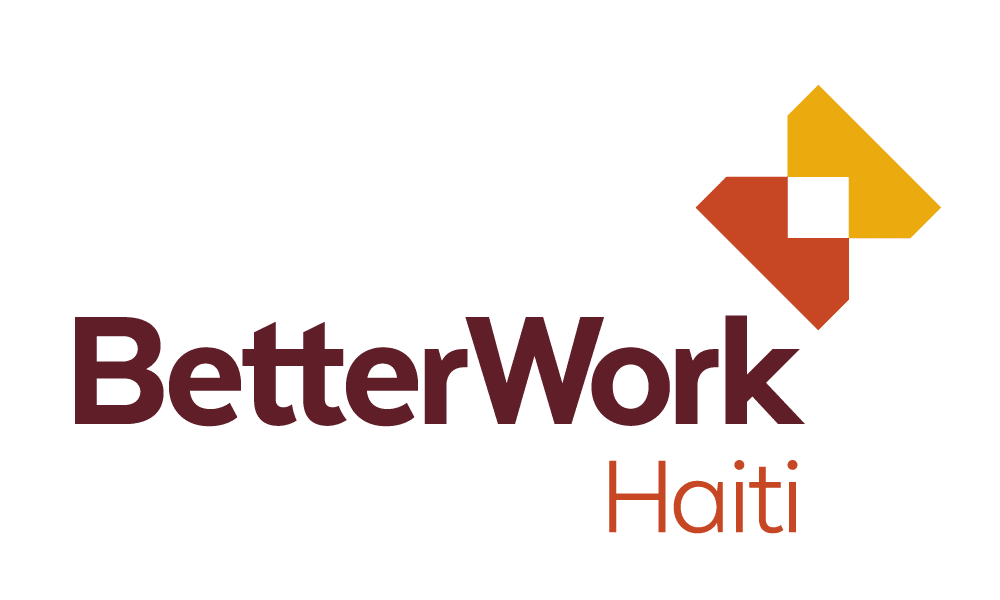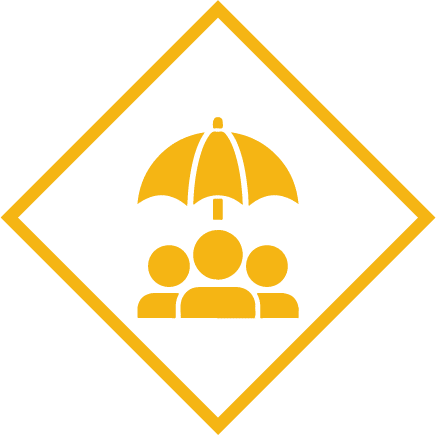Better Work Haiti
Better Work Haiti was established in June 2009 as a condition of the Haitian Hemispheric Opportunity through Partnership Encouragement Act of 2008 (HOPE II).
HOPE II is a U.S. law that affords preferential treatment in the form of duty-free access for imports of apparel and certain other goods from Haiti into the United States. This legislation aims to promote progress towards a market-based economy, increasing employment, enhancing the rule of law, eliminating barriers to U.S. trade, combating corruption and protecting internationally recognized human and worker rights. For a producer to remain eligible for this preferential treatment, it must comply with “core labour standards” and with the labour laws of Haiti that directly relate to and are consistent with the core labour standards.
In its fourteen years of operations, the programme has made important strides in improving working conditions and industrial relations in Haiti’s garment industry despite the complex operational context.
Strategic Goals
Better Work Haiti’s 2022-2027 strategic phase will work to achieve the following outcomes:
By 2027, compliance with national labour law and international labour standards is sustained in the Haitian garment sector.
By 2027, the Haitian garment sector addresses labour-related issues in line with national labour law and international labour standards
Outcome 3. By 2027, government policies and institutions support the promotion of decent work
Latest news
Working in jeopardy: Stories from Haiti’s garment industry
The humanitarian crisis in Haiti has not spared the garment industry. As businesses strive to continue operations, workers likewise struggle to pursue their livelihoods in the face of compromised safety. Haiti’s garment industry has, until recently, been a cause for optimism in a country that has grappled with political and social unrest and natural disasters …
Battling the odds: The Haitian garment industry’s struggle and resilience
Haiti’s labour inspectorate tackles challenging topics
Contribution to Priority Themes
Better Work Haiti’s activities contribute to the priority themes set out in the Better Work Global strategy. These themes crosscut the strategic goals and will be present in our factory engagement, research, policy influencing and content produced as well as affect how we allocate our human and financial resources.
Business Performance
Better Work Haiti will engage with employers and brands to promote sustainable and good purchasing practices. Better Work Haiti will continue collaboration with the Creating Investment Opportunities (CIO) project to cope with local crises and create conditions for investments in the garment sector and create a unique value proposition focused on offshoring, agility, and productivity.
Data and evidence
Better Work Haiti will engage with the Government on the use of digital technologies to collect structured, centralized data to boost research and the potential of the Haitian garment sector in the global supply chain. By focusing on strengthening and expanding data collection, analysis and dissemination, Better Work Haiti will seek to influence decision-making for the garment sector.
Gender equality and inclusion
Better Work Haiti will partner with constituents and others to raise awareness about ILO Violence and Harassment Convention No. 190 to eliminate violence and harassment at work as well as foster women’s economic empowerment. In line with the Better Work Global strategy, Better Work Haiti will work to educate and raise awareness on gender-sensitive topics to support female workers’ voice, representation and leadership.
Occupational safety and health (OSH)
In collaboration with other ILO specialists, Better Work Haiti will engage with constituents to build an OSH culture by establishing OSH policies and sustainable OSH systems to support compliance and improvements. The programme will use data to identify challenges and progress in OSH compliance and support factories to strengthen their OSH capacity and management systems.
Social dialogue
Through advisory and training services, the programme will ensure that the factory-based bipartite committees have increased technical skills to foster solution-oriented dialogue on recurring labour compliance issues in participating factories. Better Work Haiti will also facilitate constructive, sectoral-level dialogue among constituents and other national actors.
Social protection
Support workshops to disseminate the National Protection and Social Promotion Policy (PNPPS) as well as the formation and maintenance of sectoral social protection tables and drafting of territorial social protection plans in the North and Northeast. Better Work Haiti will also support enterprises and unions federation knowledge and capacity to apply the PNPPS.
Wages
Better Work Haiti will continue to collect and share in-depth data on wages and other benefits to support compliance with related labour laws as well as to support constituents to pilot a transition to digital wages.




